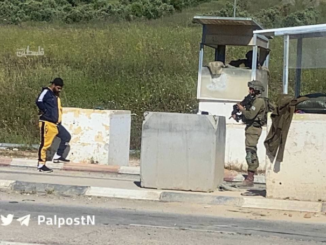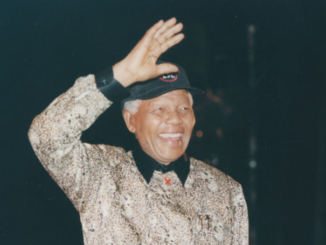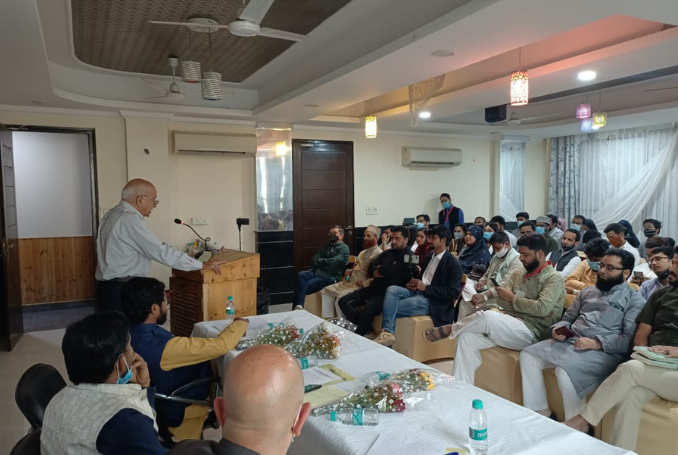
The Muslim Students Organization of India, an outfit dedicated to moderate Islamic thoughts and justice-inclined Indian policies, organized a conference on the subject, “What Role Can India Play As A Friend of Palestine?”
The conference was organized at the auditorium of Hotel River View in the Jamia Nagar area of Delhi and noted public intellectuals like K.C. Tyagi, former MP, and M.J. Akbar, internationally acclaimed author and former Minister of State for External Affairs, addressed the conference.
The conference was organized to commemorate Land Day, observed by Palestinians on March 30 every year since 1976.
A gathering of students, residents, activists and residents of the city attended it. The conference was live telecast on various social media platforms.
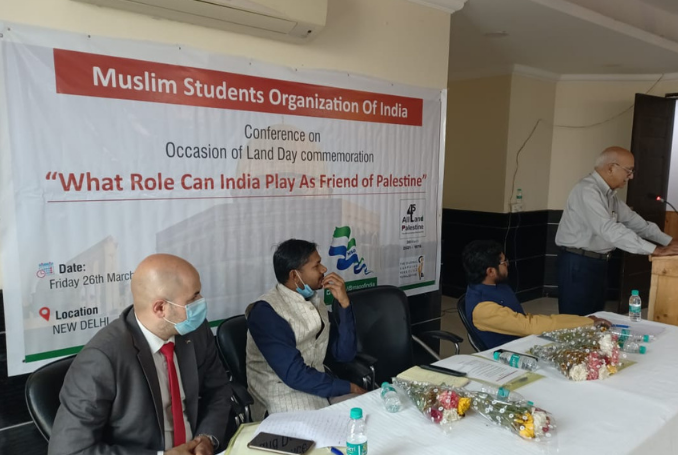
In his opening address, Shujaat Ali Qadri, the national president of MSO, said that India has always stood by the side of Palestine throughout history and that all governments in New Delhi never wavered from their commitment to the people of Palestine.
“India was among the pioneering countries that recognized and assisted Palestine Liberation Organisation (PLO) and the formal statehood of Palestine declared in 1988,” he said.
However, he also highlighted that over the years, India has grown close to Israel given its geostrategic compulsions.
“But despite India’s growing friendship with Israel, India has maintained a balance of its relations with Palestine. We, as youth and students of India, demand that the Indian government raises key issues like security of Al Aqsa mosque, stoppage of violent crimes against Palestinian people by Israeli defense forces, total protection of Palestinians’ human rights, and elimination of illegal Israeli occupation of Palestinian territories,” he said.
He also said that India must take initiative to propose full-fledged statehood for Palestine on the floor of the United Nations.
K.C. Tyagi too delved on India’s historical friendly attitude towards Palestine and its leaders.
“Yasir Arafat’s love and affection towards India is legendary. He trusted Indian leadership so much that whenever he felt threat to his life from Israeli agencies, he would walk into Indian embassy in Ramallah and felt assured,” recalled Mr. Tyagi.
He rued the fact that in the last 20 years, Palestine doesn’t figure so prominently on Indian priorities as it did earlier. “Reasons are obvious. We depend on Israeli ties more than we do care for Palestinians. But, let’s hope the future will bring hope. Indians will continue to stand by Palestinians,” he said.
M.J. Akbar rose to address the audience among the rapturous greetings. In his quintessential style, he gave a historical background of the initiation of the Palestinian conflict and how it came to a solution almost many times, but the solution somehow evaded it.
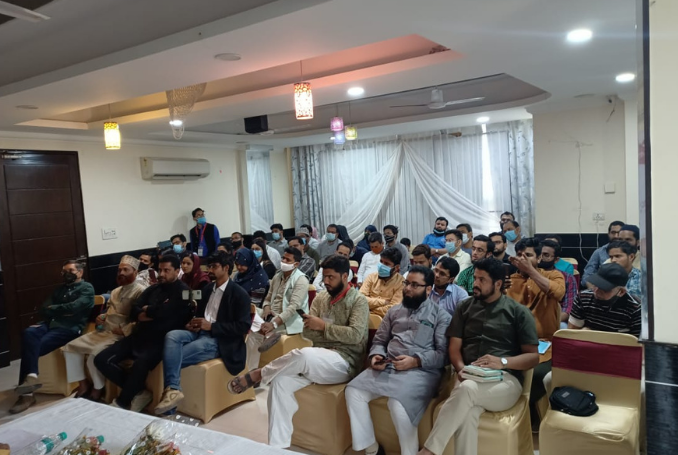
“The 20th century was a century of war. After 1910, every year saw a war in some place or the other. And many a conflict, including Palestinians, took birth in this period. However, This century also taught the world an important lesson that war is not the solution to any problem. This is very close to the kernel of Indian philosophy that peace will come through only peace. War will beget conflicts. That’s India has never invaded any country and nor it supports the invasion of any country,” said Mr. Akbar.
He added that India enjoys a unique position of being friendly to conflicting parties — Palestinians and Israelis. “Yet unlike strategic wisdom, India doesn’t believe in the balance of power, it believes in power of balance. So, more than any country, India wishes to see a solution to this West Asian country like a true friend,” said Mr. Akbar.
He revealed that India “has been offered to play a role of arbiter to foment a formula of peace”. Though he didn’t elaborate further on this owing to the diplomatic tangle attached to the issue.
Mr. Ziyadeh Haresh, a minister at the embassy of Palestine in New Delhi, also attended the event. He thanked the organizers, Mr Tayagi, Mr. Akbar to show solidarity with Palestine and highlighting the possibility of the solution to the Palestinian question.
– Mohammed Anas is the Chief Sub Editor of The Asian Age. He contributed this article to The Palestine Chronicle.

